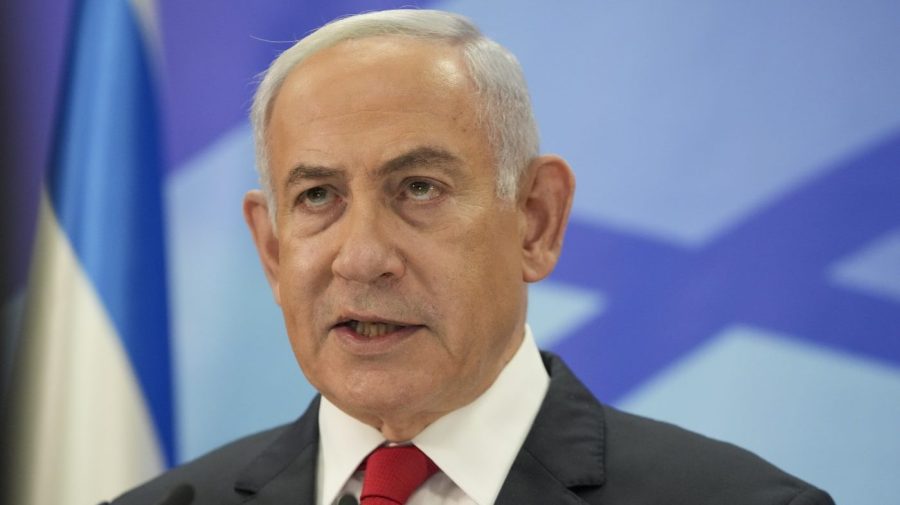
Israeli Prime Minister Benjamin Netanyahu is tapping the brakes on claims of success by President Biden, President-elect Trump and partners in the Middle East that a ceasefire and hostage release deal has been achieved to pause 15 months of war.
Netanyahu has so far delayed a vote in Israel’s security cabinet to accept the ceasefire agreement, pushing back against what his office said is Hamas’ demands around Palestinian prisoners set for release from Israeli jails.
A senior Biden administration official told reporters in a call Wednesday night that “Israel agreed to the prisoners who will also be released.”
The potential gaps call into question the finality of a ceasefire and hostage deal set that negotiators hoped would start by Sunday.
U.S., Egyptian and Qatari mediators are meeting in Doha Thursday, focused on the terms of the implementation of the deal, a senior administration official said, including humanitarian provisions, the ceasefire terms and the specific hostages and prisoners going free.
An Israeli official told The Hill that there are still questions on which Palestinian prisoners are going to be released, where they will go, and whether they will be exiled somewhere other than the Gaza Strip.
“I don’t believe it will stop the deal, we’re not there,” the Israeli official said. “It’s being worked out as we speak, hopefully soon we’ll have 100 percent.”
But even if the deal takes place, there will be the looming possibility the ceasefire falls apart amid accusations or violations by either side.
News of the ceasefire quickly set off an effort by both Trump and Biden to claim credit.
While Trump is credited with bringing extra pressure to bear in bridging final gaps between Israel and Hamas, the Biden administration put forward a framework for the deal months ago. Special Envoy for the Middle East, Steve Witkoff, assisted Biden’s lead negotiator, Brett McGurk, during the final stages of the talks.
“We wanted to have an engagement with Prime Minister Netanyahu, which Steve went to Israel to do, came back [to Doha]. I thought that it was that was quite effective,” the Biden administration official said.
Trump celebrated the deal on Wednesday calling it “EPIC” and claiming credit for getting it over the finish line. The incoming president wants to expand the Abraham Accords with normalization between Israel and Saudi Arabia, but the future of Gaza has long been a key sticking point.
“President Trump is very interested and focused on what he would like to call, the ‘deal of the century’ in the Middle East, which is normalization between Saudi Arabia and other GCC states with Israel,” said Firas Maksad, senior fellow with the Middle East Institute.
“It’s no secret in Washington that he feels he was short changed and not given enough credit for the Abraham Accords… He thought he deserved the Nobel Prize for that.”
Secretary of State Antony Blinken earlier this week said that Israel and Saudi ties are “ready to go,” but cautioned that normalization hinged on moving through the three phases of the ceasefire deal toward Palestinian sovereignty, and the linking up of the West Bank and the Gaza Strip under Palestinian rule.
“The need to end the war in Gaza and for a credible road to Palestinian statehood is all the more urgent for Riyadh,” Blinken said.
But it’s unclear if Trump, when sworn into office, will maintain pressure on Israel to adhere to the ceasefire deal, if Jerusalem alleges violations from Hamas.
“We’ve made it very clear to the Israelis, and I want the people of Israel to hear me on this: If they need to go back in, we’re with them,” Trump’s incoming National Security Advisor, Rep. Mike Waltz (R-Fla.) said on Fox News Wednesday. “If Hamas doesn’t live up to the terms of this agreement, we are with them.”
Trump warned of unleashing “hell” in the Middle East if the hostages are not released and the senior Biden administration official said that was understood as Israel escalating the war against Hamas in the Gaza Strip “significantly,” but that the hostages would likely be killed in the fighting. Qatar and Egypt has reportedly played a key role in moving Hamas toward a ceasefire.
Among the expected 33 hostages released in a first phase of a ceasefire deal include two Americans, Keith Siegel, 64 and Sagui Dekel-Chen, 35. A third American, Edan Alexander, would be expected to be released in a second phase of the deal. The first phase of the deal is supposed to last six weeks, during which negotiators would seek to finalize the details of a more permanent peace deal.
“We’re committed to getting Edan out, and we’re committed to getting the remains out,” the senior administration official said. The majority of the 98 hostages held by Hamas are believed dead, although the exact number is not known.
Among the hostages include 94 people kidnapped from southern Israel during Hamas’s Oct 7 terrorist attack, the remains of two soldiers held by Hamas during the 2014 war, and two Israeli civilians that reportedly wandered into the Gaza Strip and were taken hostage by Hamas, in 2014 and 2015 respectively.












